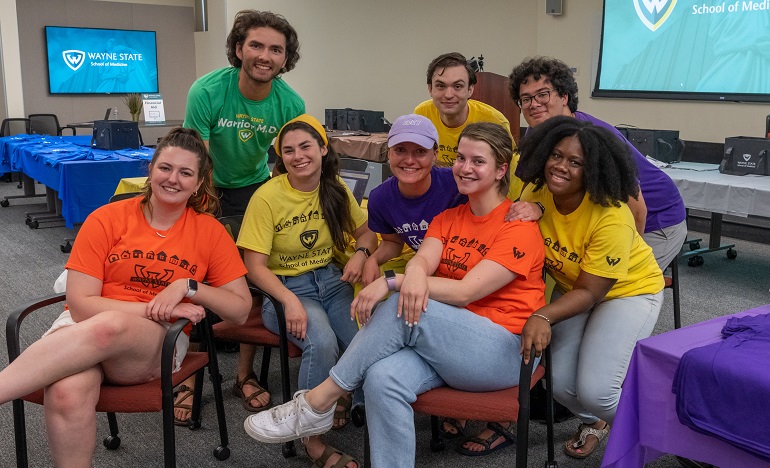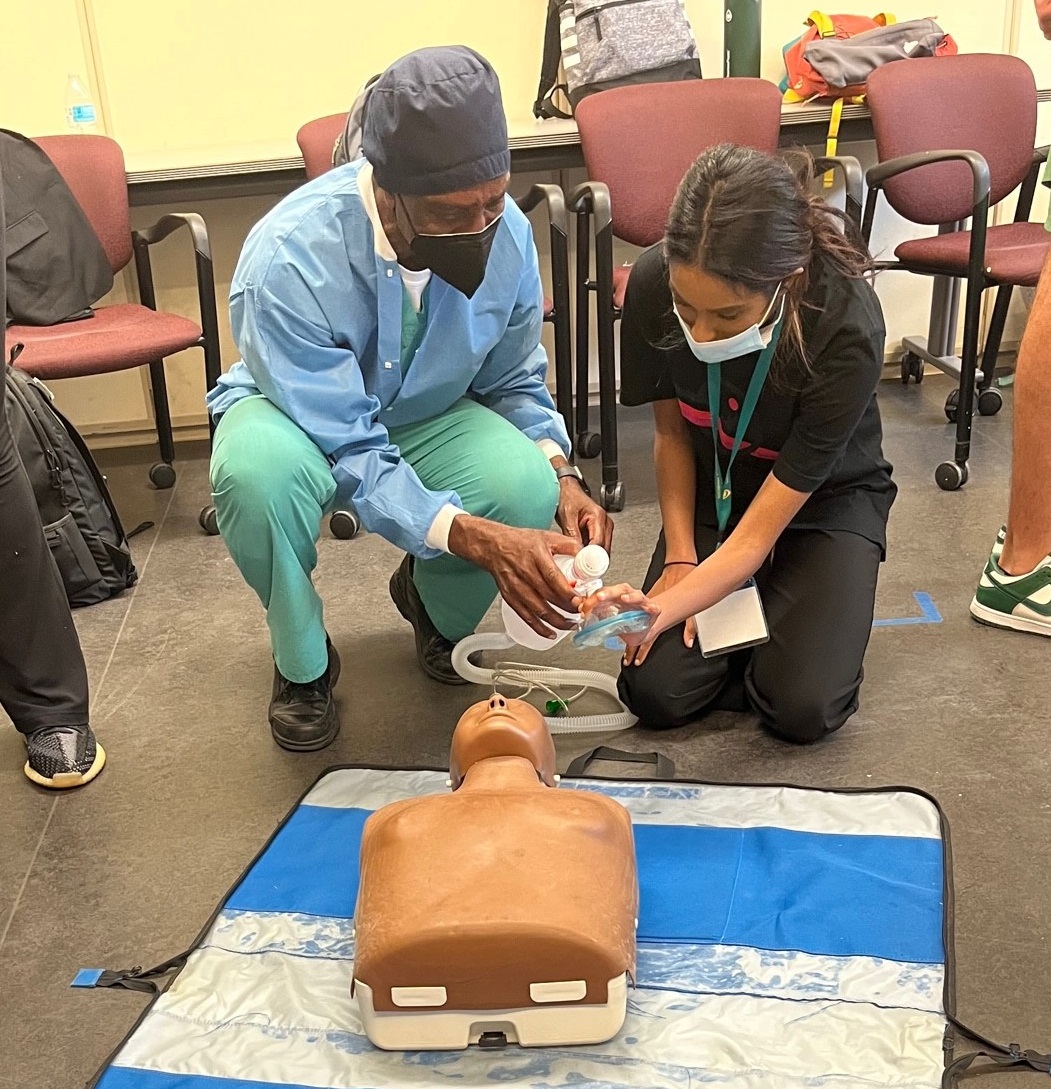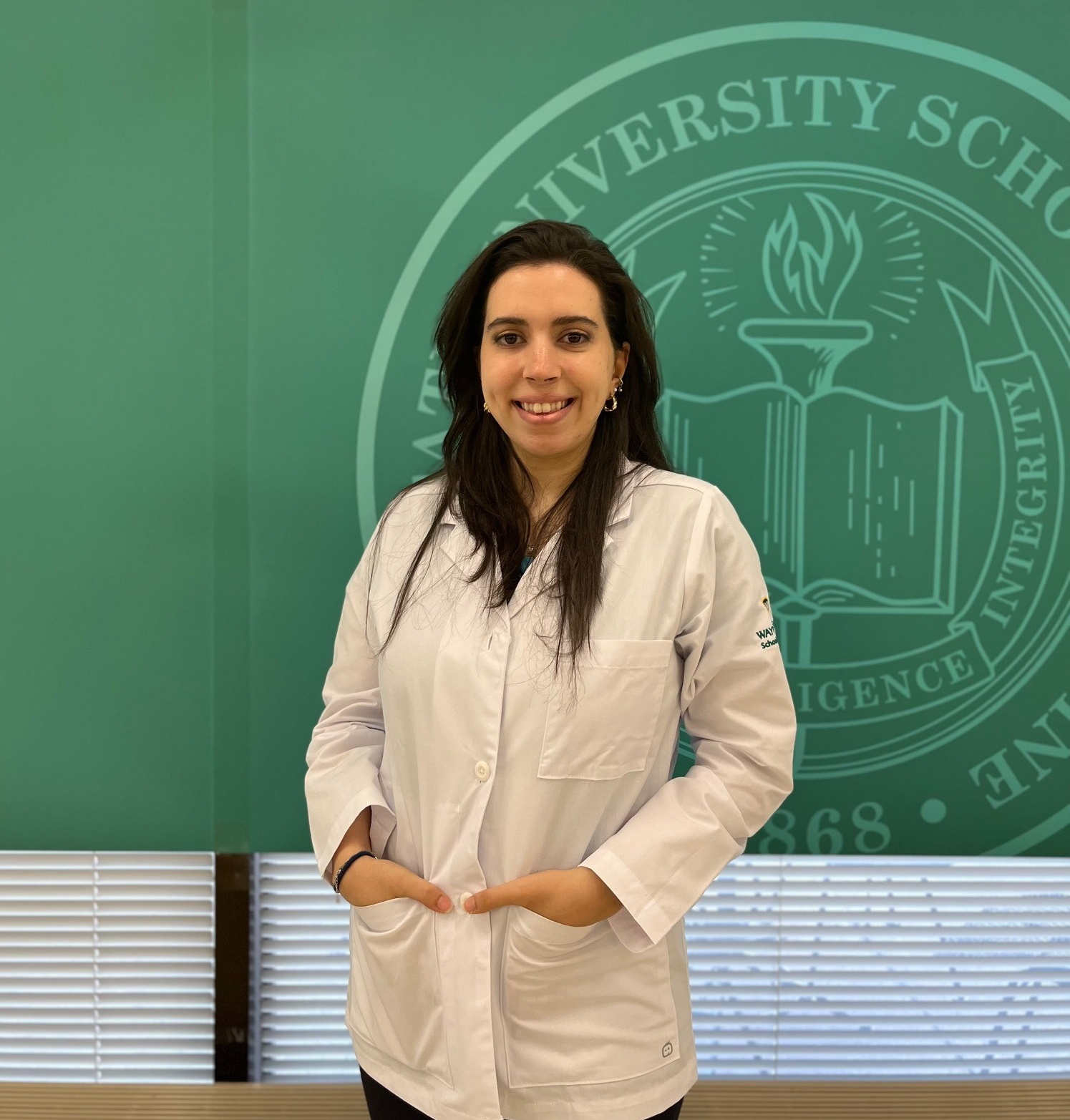
Breanna Ramsey spent a lot of her life on Wayne State University’s medical campus, where her mother worked in various clerical offices in neighboring Detroit Medical Center hospitals.
“I often spent time with her at work if no one was available to watch me. I got to know many medical professionals, who helped me understand why I'm so passionate for medicine,” she said.
Ramsey, born and raised in Detroit, earned her bachelor’s degree in Kinesiology-Exercise and Sports Science as a Wayne Med-Direct Scholar, completing a portion of her studies during the coronavirus pandemic. The Med-Direct program supports deserving students who commit to complete both their undergraduate and medical school education at the university.
“COVID-19 forced me to really sit down and rediscover my ‘why.' Seeing the devastating effects and the worsening disparities that occurred reminded me of why I wanted to come to medical school in the first place: to improve health care for all,” Ramsey said. “The school’s commitment to urban clinical excellence really attracted me. I’m most looking forward to getting out in the community and pouring back into the city that made me who I am.”
Ramsey is one of 300 new medical students who took the first step in their journey to becoming doctors during the Wayne State University School of Medicine’s Orientation Week for the Class of 2026, held July 5-8 in Scott Hall and the Mazurek Medical Education Commons.
“I’m so happy to spend another four years here, at the School of Medicine,” Ramsey said.

The week kicked off with a welcome breakfast in the Scott Hall Cafeteria. Later, campus tours were led by the Class of 2025, including a visit to the Kado Clinical Skills Center. The new students also received Basic Life Support training, participated in House meet-and-greet activities, and met and spoke with course directors.
“The Office of Admissions is pleased to present 300 outstanding matriculants for the 2026 class,” said Kevin Sprague, M.D., associate dean for Admissions and Enrollment Management. “They have completed a rigorous application and interviewing process, demonstrating altruism, integrity, curiosity and resilience. They are prepared to take on challenges of social determinants of health and marginalized patients. We welcome their energy and enthusiasm.”
Ramsey’s new classmate, Arainya Durham, who also calls Detroit her hometown, came to be a medical student after a journey of several years that took her from earning a degree as a pre-medicine student at the University of Michigan to becoming a registered nurse for five years when she was offered a scholarship from Wayne County Community College District. Nursing fell in her lap, she said, but it wasn’t her passion.
“I just got the motivation to say. ‘I’m going to try this again,’” Durham said.
She met Deborah Holland with the medical school’s Office of Diversity and Inclusion when she inquired about shadowing opportunities. “We kept in touch for years,” Durham said. She went back to school, earning her prerequisites and getting more clinical experience. She was accepted into the school’s Post Baccalaureate Program last year and finished the program in May.
“It’s crazy I’m here,” she said.
Ramsey, Durham and their classmates spent the rest of the week meeting with their color-coded houses (previously known as learning communities) and small-group Gross Anatomy teams, attending meetings and webinars about wellness, social determinants of health in Detroit, and more. House Olympics, a field day competition held at The Corner Ballpark in Detroit, capped the week.
The Class of 2026, selected from an initial pool of 8,017 applicants, includes 156 females and 144 males from 25 different states and 14 different birth countries who earned undergraduate degrees from 94 colleges. Additionally, 40% of the class is non-traditional, indicated by two or more gap years, and 31 students are first-generation college graduates.

Among those nontraditional students is Nadeen Sukhon, who earned her undergraduate degree in 2019 from the University of Michigan, but wanted more clinical work opportunities and volunteer experience before starting medical school. She received a master’s degree in biomedical sciences with a discipline in public health in that time as well.
The Ann Arbor native saw the need for community care in Detroit when she visited the city on an elementary school field trip, where she learned about the community’s homeless population. “Ever since being introduced to Detroit, I realized there is a need to act on situations,” she said.
She spent high school and college volunteering and giving back to the community as much as she could, then traveled with her family in 2017 to Jordan, where her father first moved as a Palestinian refugee before she was born. Her family volunteered for Atlantic Humanitarian Relief, a global refugee mission organization that brings care from dentists, pharmacists, physicians and other health care professionals to areas in need.
“What a beautiful way to live life and give back to the community,” she said. “It was a very emotional trip.”
She hopes to get involved with similar opportunities in Detroit. “If I’m ever going to serve the community, what better community to serve than Detroit? What better teachers than the patients and community of Detroit?” she said.